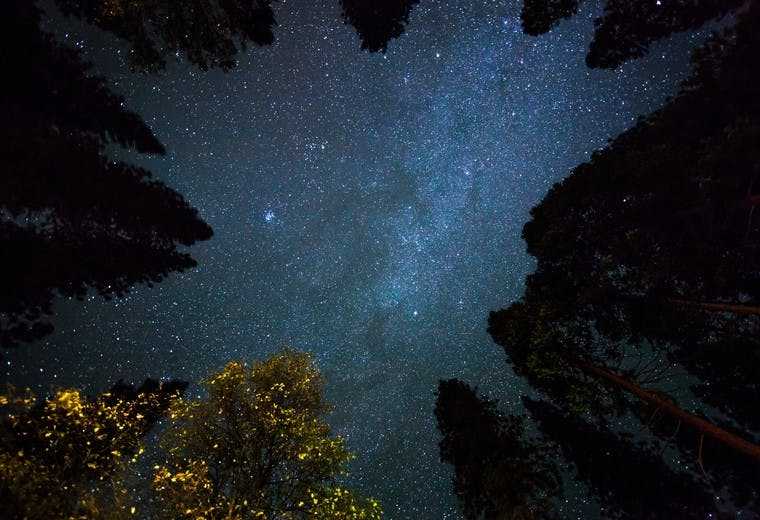A Response to Collins' Argument for Design by Fine-Tuning
In this paper, I will offer a focused response to Robin Collins' argument for the fine-tuning of the universe by design in God, Design, and Fine-Tuning. From his two premises and the prime principle of confirmation, he concludes that the (apparent) fine-tuning of the universe strongly supports the hypothesis for a theistic designer over the atheistic single-universe hypothesis. His first premise, "The existence of the fine-tuning is not improbable under theism" (Collins 5), is as he says rather uncontroversial, and so I offer no objections to it in this paper. Instead, I will focus on responding to his second premise, which asserts the vast improbability of fine-tuning under the atheistic single-universe hypothesis.
This second premise is based on three sub-premises, namely (2-a) that the constants of physics have an extremely small range of life-permitting values, (2-b) that the total possible range of these constants’ values is astronomical, and (2-c) that under the atheistic single-universe hypothesis, the constants would have arisen somewhat randomly or under some regular distribution (Collins 5). To maintain the second sub-premise, Collins considers and hastily dismisses the “more fundamental law objection,” which suggests that the constants could not have been anything other than they are, as dictated by some grand unifying theory (Collins 6). For the sake of my argument, I will put this sub-premise, as well as the first (2-a), to the side and concentrate on the remaining third sub-premise, using it to support my argument that the apparent fine-tuning of the universe cannot be assumed to be "very improbable under the atheistic single-universe hypothesis" as Collins' second premise asserts (Collins 5).
The third sub-premise (2-c) makes ungrounded assertions about the nature of the probability governing the outcome of the physical constants, suggesting the constants are equally likely to be any value within a given range. It is based on the principle of indifference, which presumes probabilities to be regularly distributed when there is a lack of evidence to suggest otherwise (Collins 9). This principle, which may have some grounds in mathematical models, most certainly should not be relied on to support the existence of a theistic designer. If you applied the same principle of indifference to the raw possibility of God existing, you would have a 50% chance that God existed and a 50% chance that God did not, showing the principle to be clearly unhelpful and inconsistent in this particular realm of thought.
Collins offers Bertrand's paradoxes (which result in probabilities being inconsistently calculated because of the different parameters that could be considered in determining their outcome) as a problem with the premise, but he does not seriously consider its meaning, defiantly replying that the problem "does not seem to arise for most cases of fine-tuning" (Collins 9). The larger problem, however, is that we simply do not know enough about the universe to make this assumption. For all we know, there could be a multitude of factors that contribute to the outcomes of the constants of physics, and if this is the case, then these outcomes could be thought of in the following way. Suppose you were to tell someone that a number would be chosen between 2 and 12, but you did not at first reveal how the number would be chosen. The person may be led to believe that each number has an equally likely chance of being selected, but when you reveal that the method is the rolling of a pair of dice, it becomes clear that there is a greater probability of rolling a 7 than rolling a 12—that is, there is a non-uniform probability distribution. So even though the values of either die are regularly distributed, the sum of the outcomes is not.
Likewise, the gravitational constant is somewhere in the possible range that Collins suggests (G in the range 0-10^46G), and so the value of G falling within Collins' proposed range of life-permitting values (0-10^9G out of 0-10^46G) could actually have a probability higher than 1/10^31 (Collins 9). We can only make such conclusions when we have an idea of what supra-universal factors and processes contribute to the determination of physical constants, as with the dice problem. With this, we have diminished the credibility of the sub-premise 2-c and as a result, the apparent fine-tuning of the universe cannot be said to be "very improbable" under the atheistic single-universe hypothesis.
Many alternative theories have been proposed which could potentially explain the seemingly astronomical probability of the existence of life in the universe that Collins finds in his second premise. Collins considers a grand-unifying theory or a multiple-universe hypothesis being able to account for the problem, but he does not also consider the possibility that the constants of physics change in accordance with the age of the universe, a theory being seriously considered by physicists (Whitehouse).
My overall conclusion is that there are various explanations that could be offered for the existence of apparent fine-tuning, and it is irrational to make the assertion that all non-theistic explanations are "very improbable" just to fit an argument. I have not denied Collins' hypothesis for theistic design as a whole, nor have I supported alternative theories or even suggested that they are more likely. I have simply expounded certain problems with and developed counter-arguments against a particular set of assumptions that the author makes in his second premise, specifically targeting the third sub-premise and revealing the errors in his argument from probability and likelihood. I have shown that since this sub-premise is ungrounded in actual scientific data, the second premise is inconclusive and leaves the thesis as a whole to be questioned and re-examined.
***
Collins, Robin. Christopher Bernard and Raymond Martin (eds). "God, Design, and Fine-Tuning."" God Matters: Readings in the Philosophy of Religion. New York: Longman, 2002.
Whitehouse, David. " BBC News | SCI/TECH | Laws of physics 'may change'." BBC NEWS | News Front Page. 10 Oct. 2009 http://news.bbc.co.uk/2/hi/science/nature/1991223.stm.
